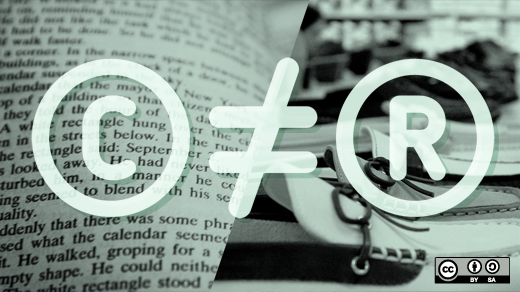Here's one list purporting to be the "10 Major Companies Which Are Supporting SOPA/PIPA" – Philip Morris, Rolex, Dolce & Gabbana, Adidas, U.S. Chamber of Commerce, Ford Motor Company, Sony, Wal-Mart, World Wrestling Entertainment, Electronic Art – Notice something about them?
Or lets take the top seven in alphabetical order off of the list of "supporters" on this Craigslist page – 1-800 Contacts, Inc., 1-800-PetMeds, 3M, ABRO Industries, Inc. (automotive supplies), Acushnet Company (Titleist and Footjoy golf), adidas America, AstraZeneca plc. Note how many of these companies are not in the content business, but in the merchandise business.
Counterfeit merchandise is real. Yes, the dollars lost are as difficult to calculate (much less agree on) for counterfeit merchandise as they are for claims of how much copyright "piracy" costs, but the problem is real. And it is more dangerous. Drugs, automotive parts, and military aircraft parts are counterfeited.
Until the latest report a few weeks ago, footwear was the most heavily counterfeited commodity (it was just surpassed by consumer electronics). You might not have sympathy for the manufacturers of footwear or luxury purses, and it's true that most of the buyers of the counterfeit goods would not buy the original. But I worked in the footwear industry and had the privilege of working with one of the best anti-counterfeiting agents in the world, Ray Tai, who worked in China for Adidas. He had a passion for his work, not because he wanted Adidas to sell more shoes, but because he believed in human rights. He saw young children making counterfeit shoes in sweatshops, using hazardous chemicals that aren't used in authentic product, and his mission was to stop it. Stopping counterfeit merchandise is about the money, but it is also in no small part about health, safety and human welfare.
Make no mistake, I am against PIPA and SOPA. I have no doubt that, no matter how well-intentioned the content industries and legislators supporting them are, if passed these laws would be used to silence critical speech and shut down fair competition, events that occur all too commonly already under the current copyright regime. The fair use doctrine of copyright law is the major governor of overly aggressive efforts to limit speech rights, but PIPA and SOPA steamroll right over this critically important doctrine.
Free speech can be a concern in trademark too (ask Aqua about its song "Barbie Girl"), but less often and courts handle it pretty well. It also doesn't generally arise in the area of counterfeit goods, which is the only type of goods that SOPA and PIPA targeted. Taking PIPA as an example, suppose the sections that refer to copyright were removed, leaving this as the definition of "Internet site dedicated to infringing activities":
an Internet site that
(A) has no significant use other than engaging in, enabling, or facilitating the sale, distribution, or promotion of goods, services, or materials bearing a counterfeit mark, as that term is defined in section 34(d) of the Lanham Act; or
(B) is designed, operated, or marketed by its operator or persons operating in concert with the operator, and facts or circumstances suggest is used, primarily as a means for engaging in, enabling, or facilitating the activities described under subparagraph (A).
All of the free speech concerns about PIPA fade away with this very narrow definition of the wrongful conduct that the law is meant to prevent. That's not to say that the remedies, particularly the DNS blocking as proposed, are workable (Professor Zittrain's TED Talk explaining why it's not is very helpful – start at about minute 5:00), but that can be fixed.
Copyright and trademark are very different. They are wrongfully placed under the same umbrella of "intellectual property" when they have nothing in common. They are authorized by different parts of the Constitution – the Copyright and Patent Clause for copyright ("The Congress shall have power ... To promote the Progress of Science and useful Arts, by securing for limited Times to Authors and Inventors the exclusive Right to their respective Writings and Discoveries"), and the Commerce Clause for trademark ("The Congress shall have power ... To regulate Commerce with foreign Nations, and among the several States, and with the Indian Tribes"). They protect different interests – intellectual creation on the part of copyright and fair trade on the part of trademark. And so they never should have been in the same bill; the two areas of law are not bedfellows. But the manufacturing industry threw in its lot with the content industry and lost.







21 Comments